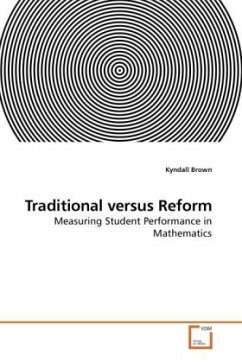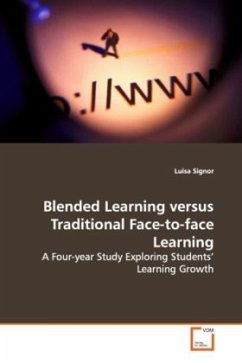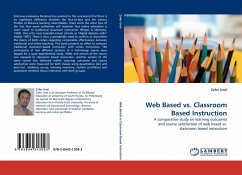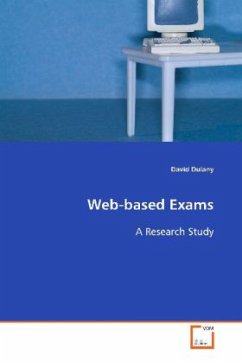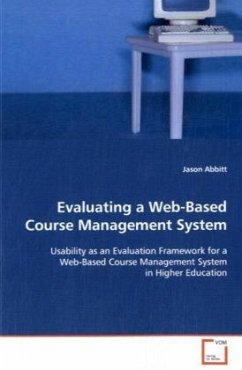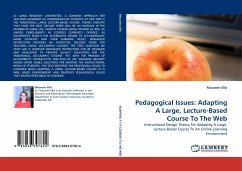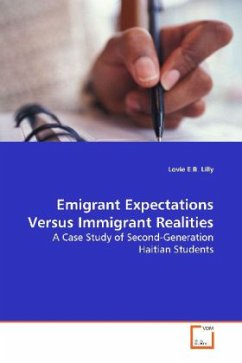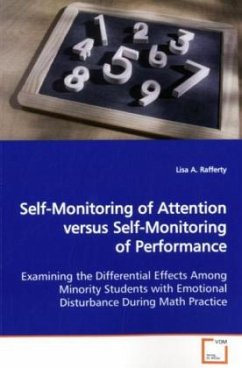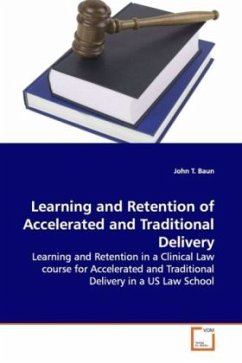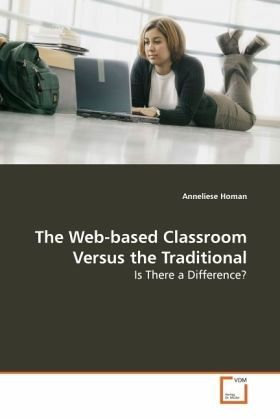
The Web-based Classroom Versus the Traditional
Is There a Difference?
Versandkostenfrei!
Versandfertig in 6-10 Tagen
32,99 €
inkl. MwSt.

PAYBACK Punkte
16 °P sammeln!
As many college and university educators embrace the vision of online programs as a means for keeping their institutions afloat in the new century, a pervading cynicism exists among others in academia who question the substance of web-based courses. Have the quality and integrity of academic and vocational programs been compromised in the rapid quest to rise above budget constraints and limitations of brick and mortar campuses to tap into the nearly infinite market of potential students not served by a traditional institution? This book explores the controversy as it documents a quasi-experime...
As many college and university educators embrace the
vision of online programs as a means for keeping
their institutions afloat in the new century, a
pervading cynicism exists among others in academia
who question the substance of web-based
courses. Have the quality and integrity of academic
and vocational programs been compromised in the
rapid quest to rise above budget constraints and
limitations of brick and mortar campuses to tap into
the nearly infinite market of potential students not
served by a traditional institution? This book
explores the controversy as it documents a quasi-
experimental study conducted to determine whether a
difference exists in the writing improvement of
students enrolled in traditional and Internet
sections of English Composition I. The work also
features an overview of the history of distance
education, the influence of education technology,
internal and external factors that may impact the
quality of web-based instruction as well as
essential components to ensure its value.
vision of online programs as a means for keeping
their institutions afloat in the new century, a
pervading cynicism exists among others in academia
who question the substance of web-based
courses. Have the quality and integrity of academic
and vocational programs been compromised in the
rapid quest to rise above budget constraints and
limitations of brick and mortar campuses to tap into
the nearly infinite market of potential students not
served by a traditional institution? This book
explores the controversy as it documents a quasi-
experimental study conducted to determine whether a
difference exists in the writing improvement of
students enrolled in traditional and Internet
sections of English Composition I. The work also
features an overview of the history of distance
education, the influence of education technology,
internal and external factors that may impact the
quality of web-based instruction as well as
essential components to ensure its value.



